A Glimpse of Holy Week in 'Emptied Spain'
‘Emptied Spain’ (España Vaciada) is a nickname for internal, rural regions of Spain that have seen large-scale migration over the past several decades to the country’s big cities and coastal areas. My village of Tortuera, located in the historic region of Celtiberia, is itself part of ‘Emptied Spain.’ One result of this decline in population, together with an overall decline in church attendance, is that while nearly every village has a church as one of its main landmarks, not every village can be served by its own priest for regular Mass and the feast days. For example, on Good Friday (which commemorates Jesus’ crucifixion), one priest in the wider region might go to one village to serve the local congregation for a Good Friday service at 4 p.m., then head off to another village to perform the same service at 5:30 p.m., and then a third village’s church at 7 p.m. Although during this period of Holy Week, many people who have ties to these villages might come for a visit, attendance numbers within the villages’ churches are generally low.
On Friday at noon, with the assistance of some Catholic youth who visited the village and help a number of churches in the region commemorate Holy Week, the church in my village performed the ritual of visiting the fourteen ‘stations of the cross,’ commemorating a particular event during the process of Jesus’ death sentence, crucifixion and burial. Each station was then tied to the reality of ‘Emptied Spain’ today, with a prayer addressed to the Lord at each station regarding this reality. I thought it worth sharing some of these ‘stations’ to convey the nature of ‘Emptied Spain’ and the grievances therein.
Inside my village’s church
Second Station: Jesus shoulders the Cross
The path of the place of the execution, the prisoner shoulders the weight of his cross. Like an animal, as someone whom all can mock. Rejected and beaten. Humiliated and alone.
Loneliness is an unending plague in our villages, an unceasingly sad cross. Houses that remain empty, squares where fewer and fewer children play, schools that shut their gates, old people whose children live in a thousand places in Spain. Loneliness in the dark winter, in the long afternoons of summer. Customs that are lost, roots that dry out. And there is no relief.
May we not lack Your strength to rerun the solitary path. Remember those who live alone, Lord.
The Stations of the Cross ritual on Good Friday inside my village’s church this year
Third Station: Jesus falls for the first time
The wood’s weight is excessive on the carpenter’s shoulders. Never was wood so hard for him who knew how to create with it, just as God the Father had created with mud. The created thing falls, like a stone, on its creator, who falls on the ground, like the seed that is ploughed into the furrow.
The first fall took place back in the 1960s. The young people of the villages left in droves, expelled by an economy that could not support all of them. The city was paradise, the Spain of industry and tourism or exile abroad would be the new house, the cozy home. The families became divided between those who left and those who remained. Waiting for the summer for reunion, experiencing from afar births, festivals, and death.
Lord, may those who left feel at home where they are, but may their village roots not dry out.
Seventh Station: Jesus falls for the second time
With less and less power: physical power, because of the torture he has been subjected to, despite the relieving of the load; emotional power, because his own people have abandoned him; the power of the heart, because he may even be afraid for those who help him in those terrible minutes, the path of the cross. Perhaps they will find themselves persecuted for helping him.
The second fall of Emptied Spain is isolation. Deficient highways in bad condition, where many lose their life or health. Non-existent trains, where previously there were routes that united villages and allowed for commercial ties. A lack of networks to connected with so-called progress, which is denied to wide areas of one and the same homeland. Looking for tomorrow in that reality is shouting in the desert.
May we no longer conform with silence, Lord.
Ninth Station: Jesus falls for the third time
The path is ever more difficult. The condemned becomes ever waker. Agony makes him tremble and fall again. There are no words of encouragement so he can get up, but rather strikes and insults. The cross remains, surprisingly, a place of consolation, because it will put an end to such great suffering.
The third fall of Emptied Spain is seeing how its products, of such great quality, are not subsequently put to use in their own places of production. They go to other countries, or to other parts of the same country. Perhaps these products come back to the village, in a way that says that they are not from here, although they in fact are. Blow after blow, one wound on top of another. The richness that could elevate the villages that are being emptied serves to develop other places.
May Your people not lack awareness of lost opportunities, Lord.
Tenth Station: Jesus is deprived of his clothes
They have reached the place of execution and it is necessary to reduce the condemned to a mass of blood and wounds, exposed to everyone’s eyes in its nudity, so that the humiliation can be complete. Humiliated and beaten before his people. Shame and scandal among those who have rejected him.
The deprivation of Emptied Spain has been growing: its peoples, its production, its lack of investments…all this has had its echo in the better and greater development of other parts of the same country. Now the line must be crossed. Now, from the emptied land’s entrails, the minerals that others need must be extracted, lest the rhythm of production and consumption should decrease. Now they want to open immense craters of mega-mines, which will be the drain through which the future will definitively be lost to the dung heap of history.
May we not cease to claim our right to our land, our water, our way of life, Lord.
An empty home in the village with the ‘FOR SALE’ (SE VENDE) sign on it.
Twelfth Station: Jesus dies on the Cross
The Galilean who made lives and hearts be reborn, who made spring and hope rise where he passed by, dies on the Cross. The builder of a kingdom for the impoverished, the humiliated and those who lack hope. He who revived dead people. He who was the life of the world, dies on the Cross.
Where there was life, now there is silence. Darkness within. Outside, everything is crumbling, little by little, announcing what must on the inside be the slow death of a house. In the villages we find terrible signboards here and there, on doors, on windows: “FOR SALE.” Two words that speak of an end, of families broken by death and emigration…projects that do not move forward. Empty houses, dead, full of the ghosts of lost dreams.
May the villages, homes, smiles and games one day revive, Lord.
Green fields and solitary paths around the village this month, as the crops begin to grow.
Fourteenth Station: Jesus is buried
Jesus had said: “If the grain of wheat dies, it gives much fruit.” With limitless pain, his people collect his body, the body of the just one who was unjustly judged. And they deposit it in the tomb, where silence is the only company. They plant it in the midst of men.
We plant our lives in Emptied Spain, in the little deeds of each day: in the greetings to neighbours, in the purchase queues. We plant ourselves in visits, reunions to reflect, in platforms to transform reality. We plant ourselves in liberation projects, in the weariness and darkness.
May we plant our lives with generosity, Lord.



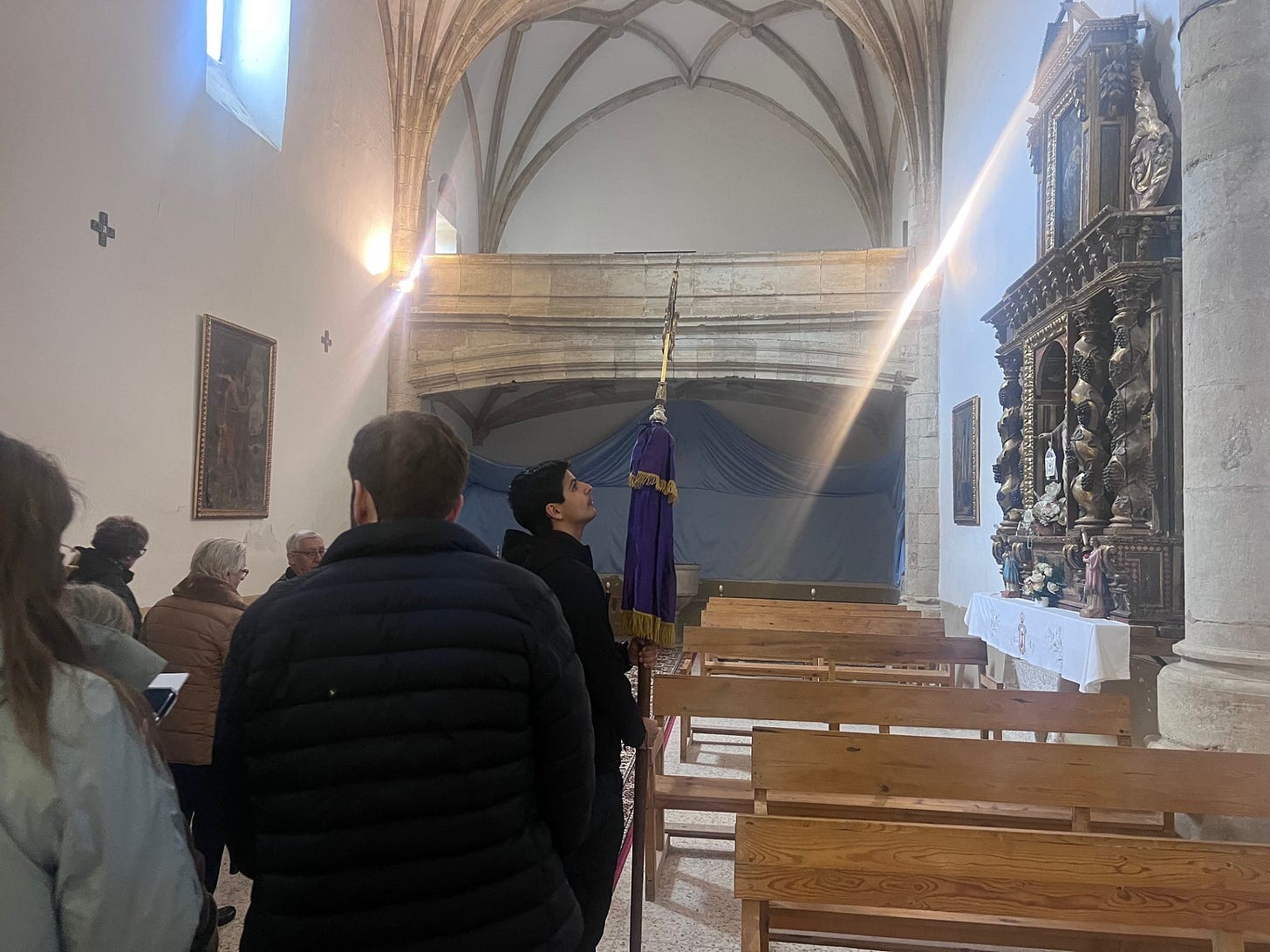
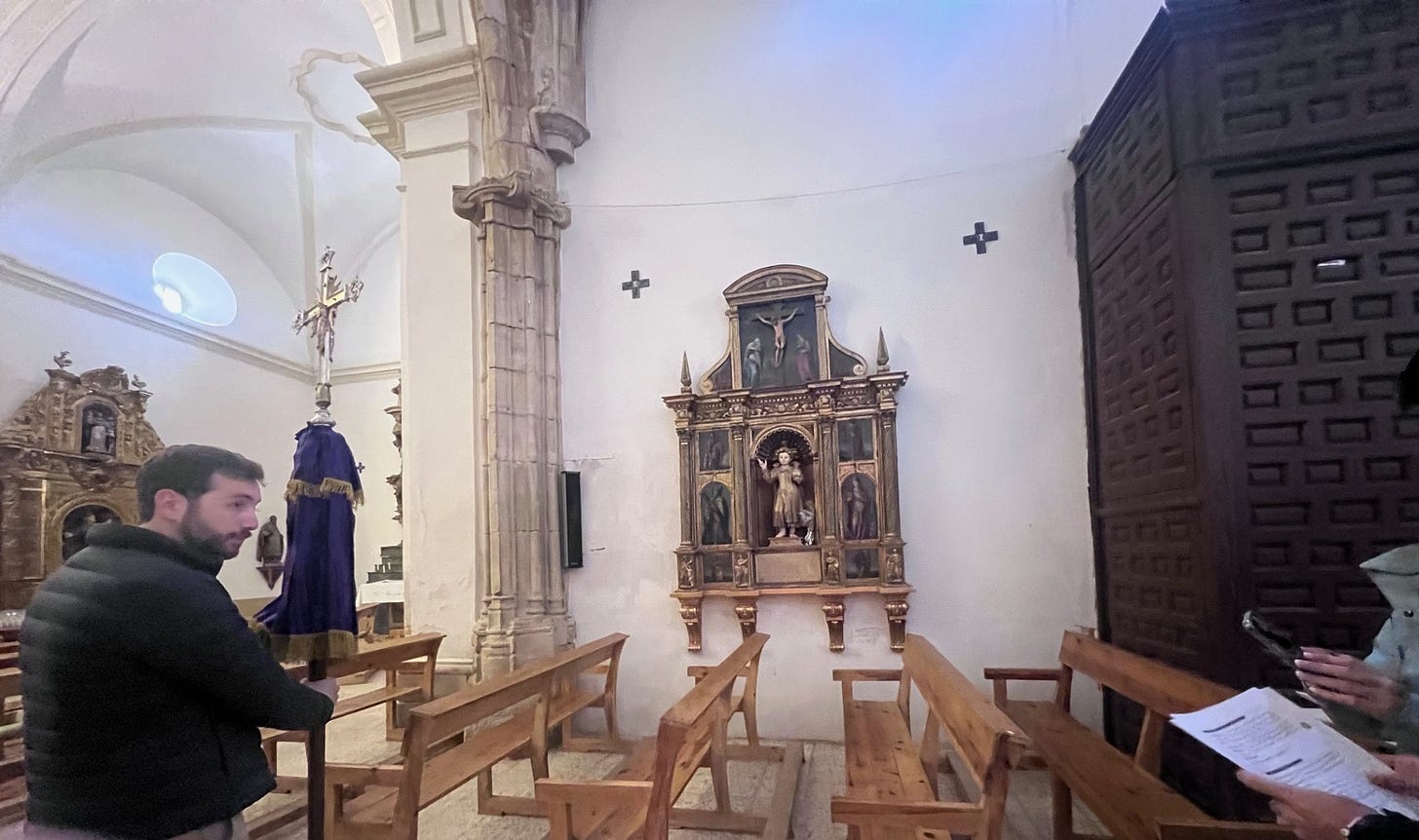
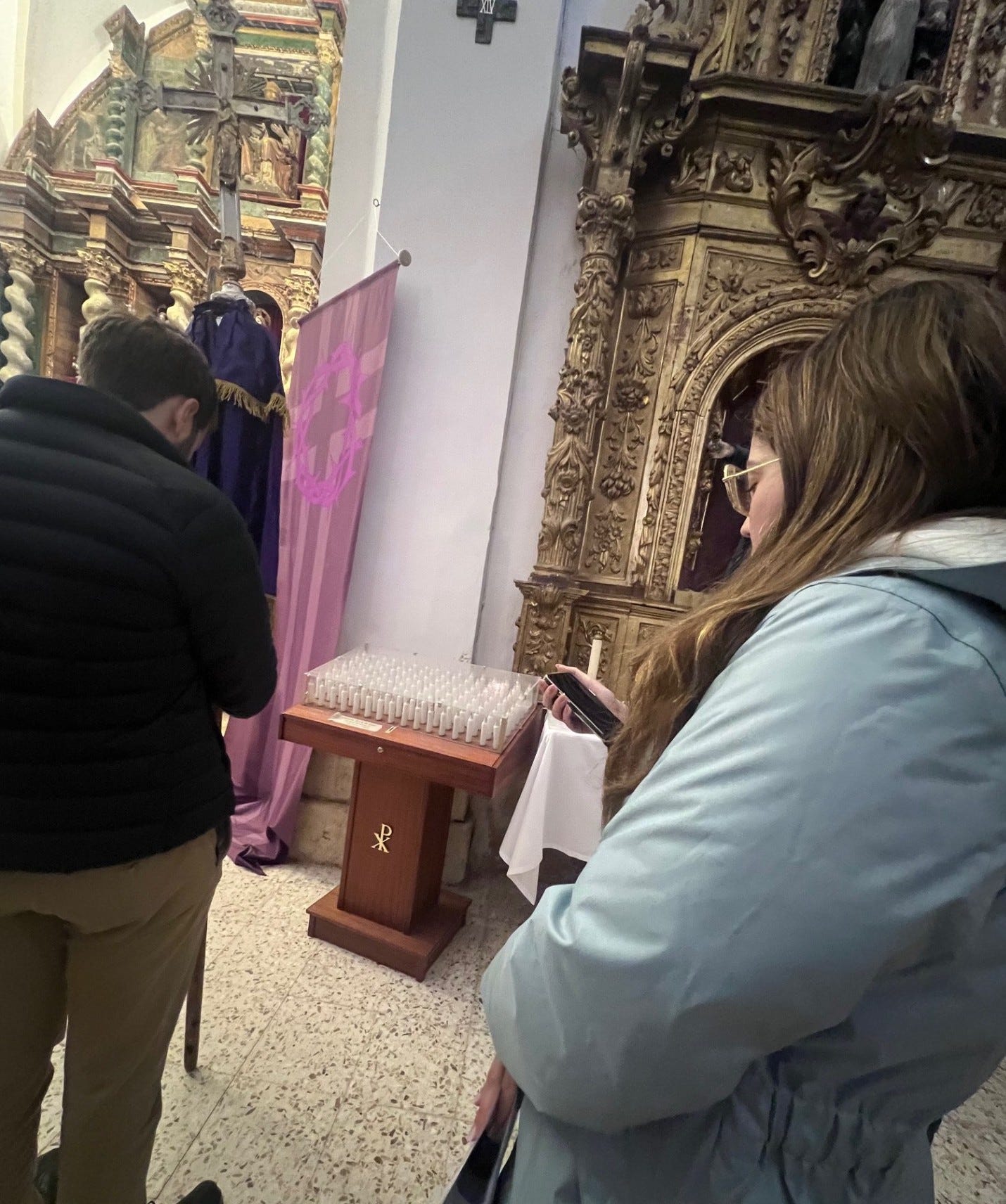

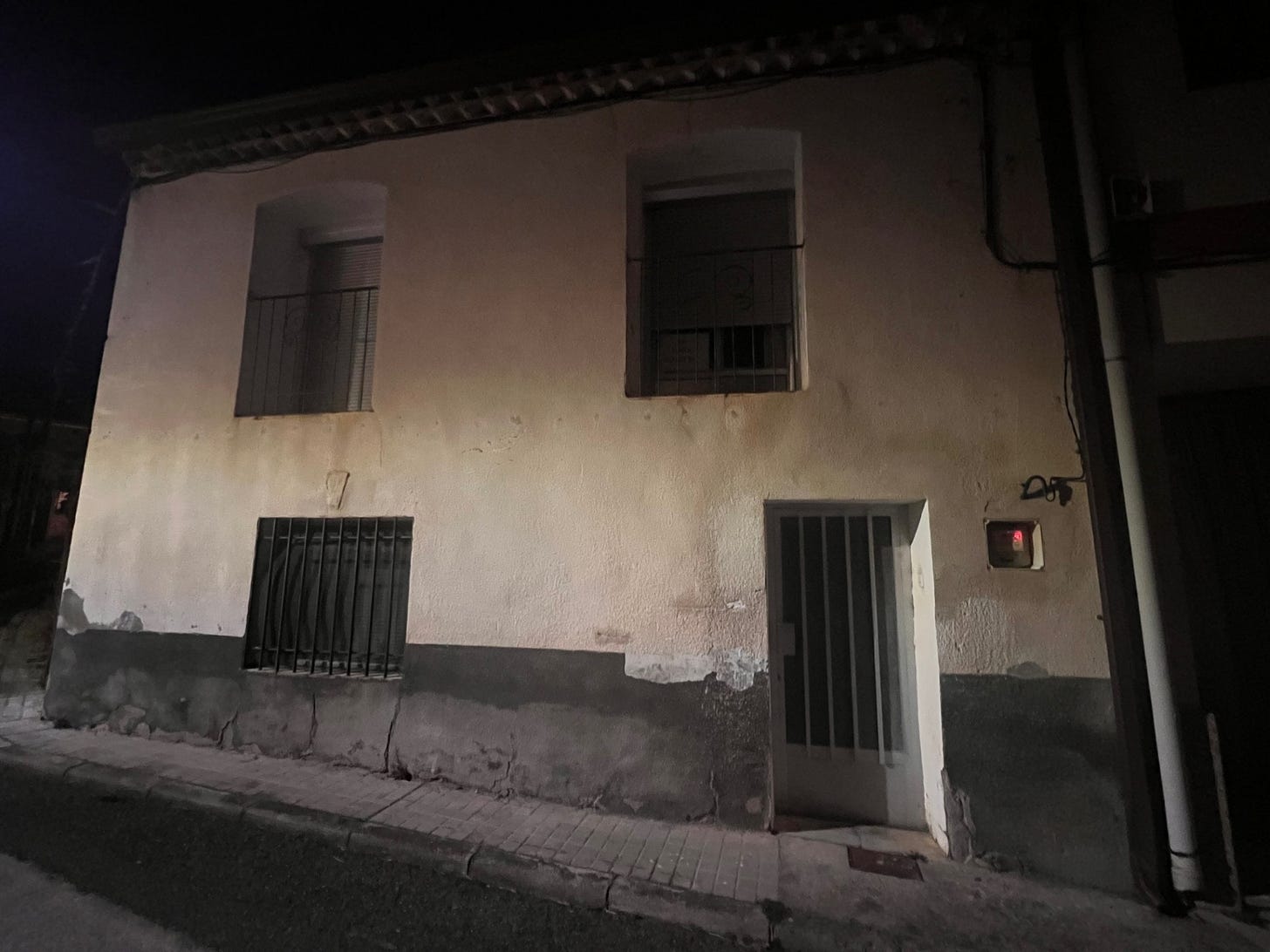
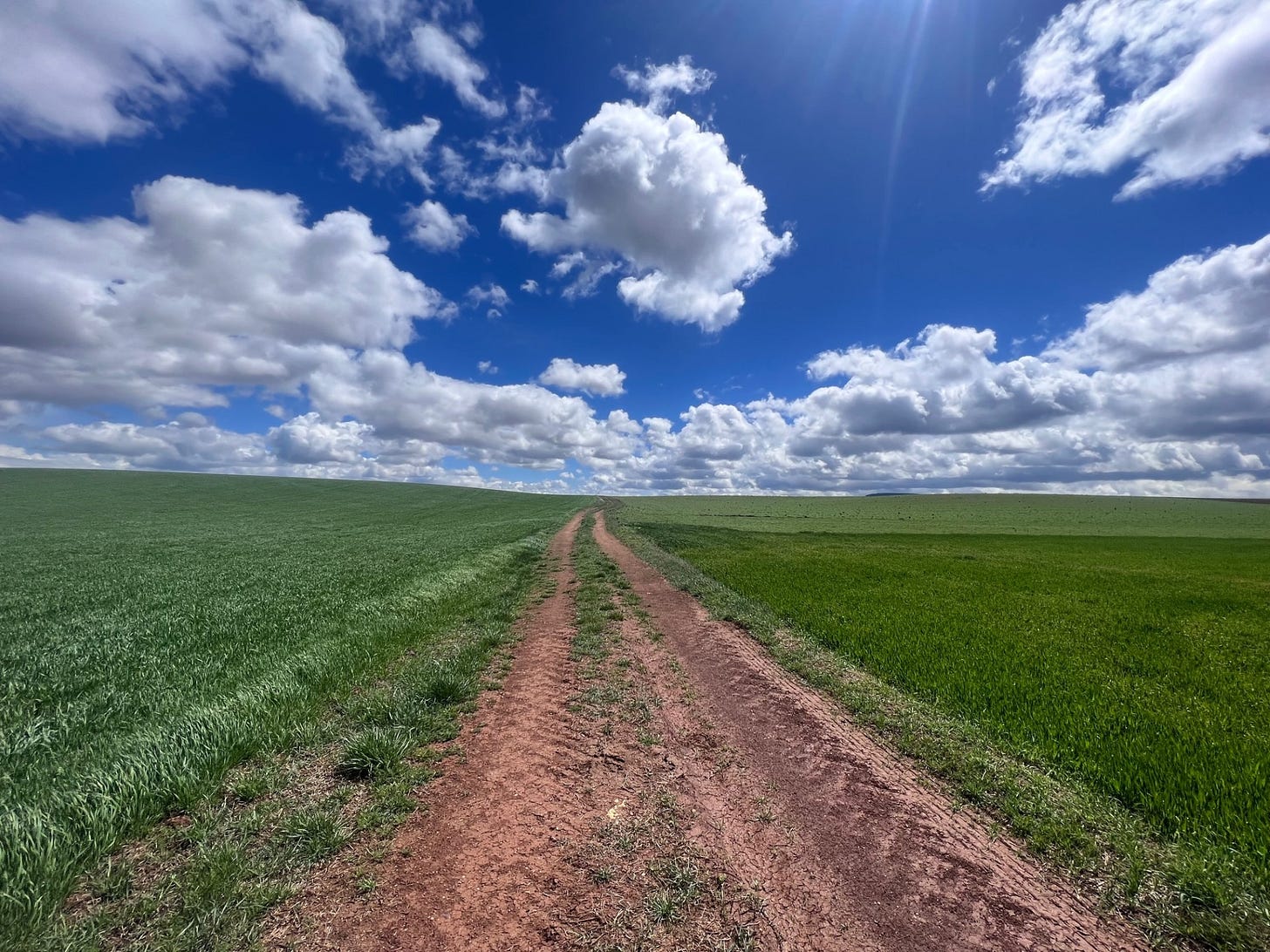
See my comment brlow
A beautiful description of the reality of life in your village